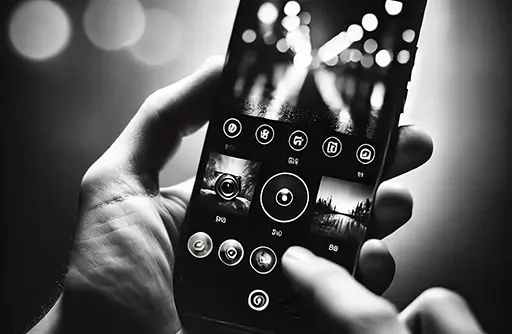Privacy feels like a luxury rather than a right. With every app we download and every photo we take, we unknowingly share pieces of ourselves with corporations that may not have our best interests at heart. This concern has been highlighted recently in a case involving Samsung’s Gallery app, which allegedly uses facial recognition technology in ways that may violate Illinois’s Biometric Information Privacy Act (BIPA). This case raises important questions about how our data is collected and used, and it emphasizes the need for individuals to take control of their online privacy.
- Unpacking the Case: What’s at Stake with Samsung’s Gallery App?
- The Importance of BIPA: Protecting Our Biometric Data
- How Facial Recognition Technology Works: A Closer Look
- The Role of User Consent: Are We Really in Control?
- Why Incognito Browsing Matters: Keeping Your Data Private
When I first heard about the allegations against Samsung, I was shocked. The Gallery app on my phone is something I use daily to store and organize my photos. However, it turns out that this seemingly harmless app has a hidden agenda. According to the plaintiffs in the case, Samsung’s app employs facial recognition technology that scans images for faces, creating unique digital representations known as “face templates.” This means that every time I take a picture of my friends or family, the app is not just storing that image; it’s analyzing and categorizing it based on their facial features.
This revelation made me think about my own online habits. Like many people, I often browse the internet without considering who might be watching or what data is being collected. This is where the incognito browser comes into play. By using an incognito browsing mode, I can navigate the web without leaving a trace of my activity behind. This feature allows me to browse privately, ensuring that my online actions remain confidential and out of reach from prying eyes—whether they belong to corporations or governments.
The plaintiffs argue that Samsung’s app violates BIPA by collecting biometric data without proper consent. BIPA requires companies to inform users about how their biometric information will be used and stored. However, many users, including myself, are often unaware of these practices until it’s too late. This highlights a critical issue: are we truly in control of our personal data? If an app can automatically collect and analyze our biometric information without our explicit consent, what does that say about our privacy rights?
The legal debate surrounding this case revolves around whether Samsung “possesses” the biometric data generated by its app. While Samsung argues that the data remains on users’ devices and is not accessible to them, plaintiffs contend that the company still exercises control over how this data is collected and utilized. This brings us back to the importance of understanding how technology works and how it can impact our privacy.
As I reflect on this case, I realize how essential it is for individuals to protect their privacy proactively. Using an incognito browser is one way to safeguard my online activities from being tracked or monitored. By opening an incognito tab, I can search for information without leaving a digital footprint. It’s a simple yet effective way to maintain some level of anonymity in an increasingly surveilled world.
The implications of this case extend beyond just Samsung; they serve as a wake-up call for all tech users. As technology continues to evolve, so too must our understanding of privacy rights and data protection. We need to demand transparency from companies regarding their data collection practices and hold them accountable when they fail to comply with laws designed to protect us.
While we may enjoy the convenience of modern technology, we must remain vigilant about our privacy rights. The ongoing case against Samsung illustrates the potential dangers lurking behind seemingly innocuous apps and services. By utilizing tools like the incognito browser app, we can take proactive steps toward protecting our personal information and ensuring that our online presence remains private. After all, in a world where data is currency, safeguarding our privacy should be our top priority.



